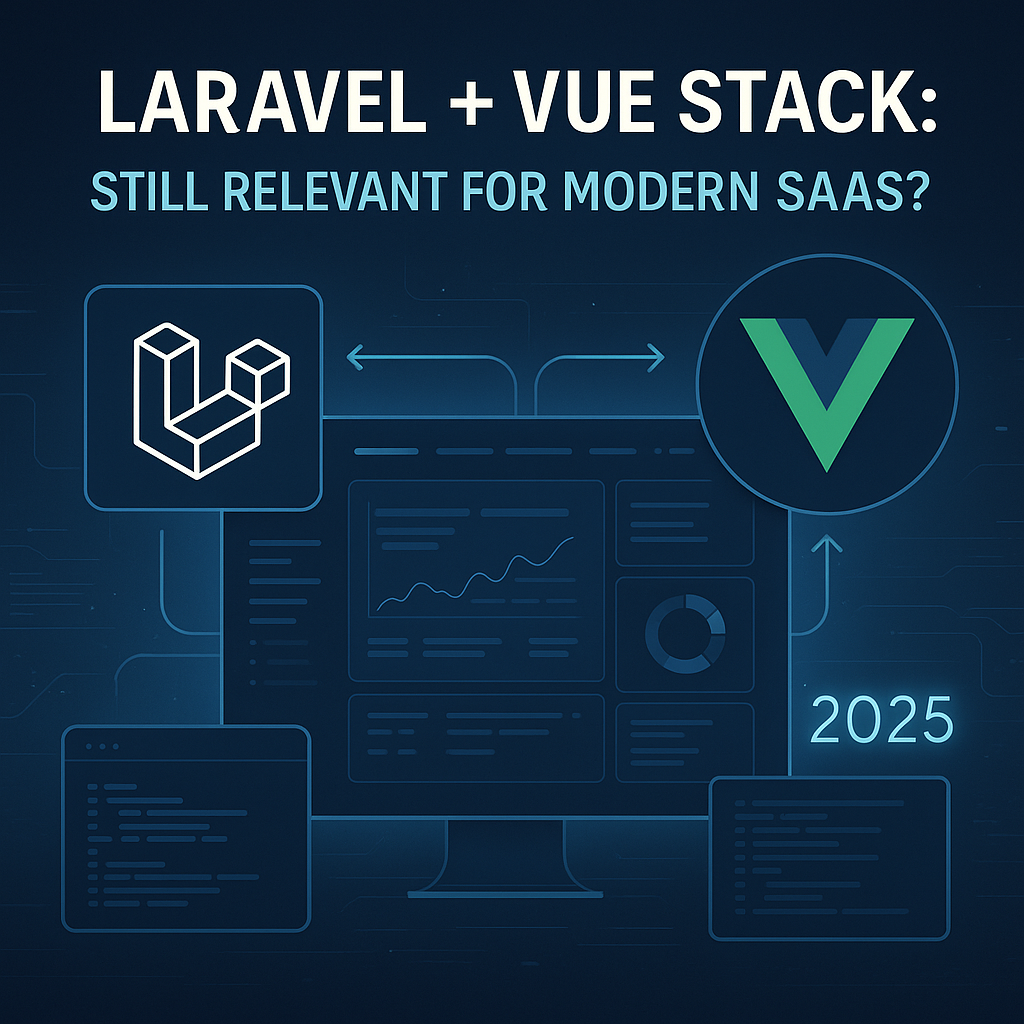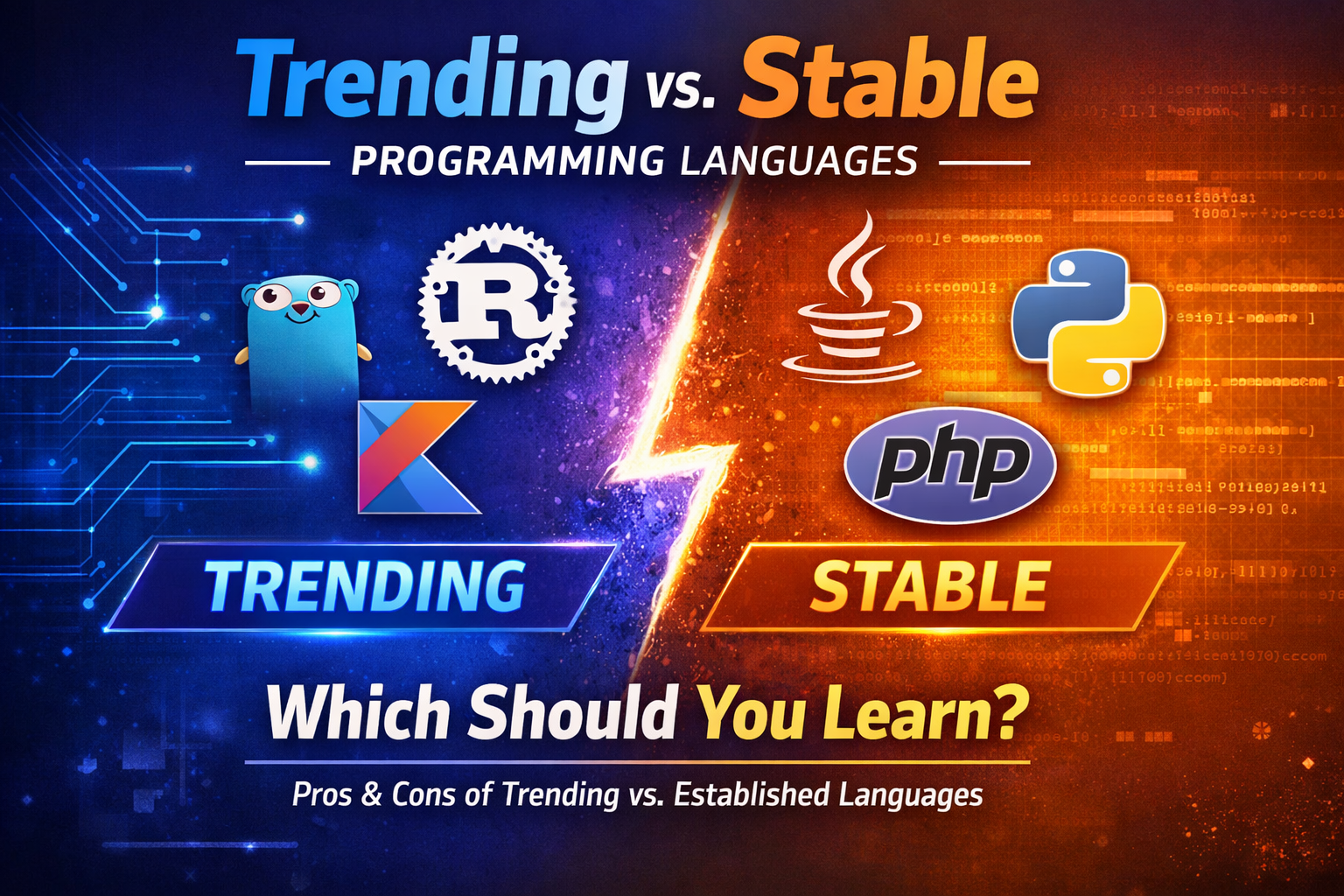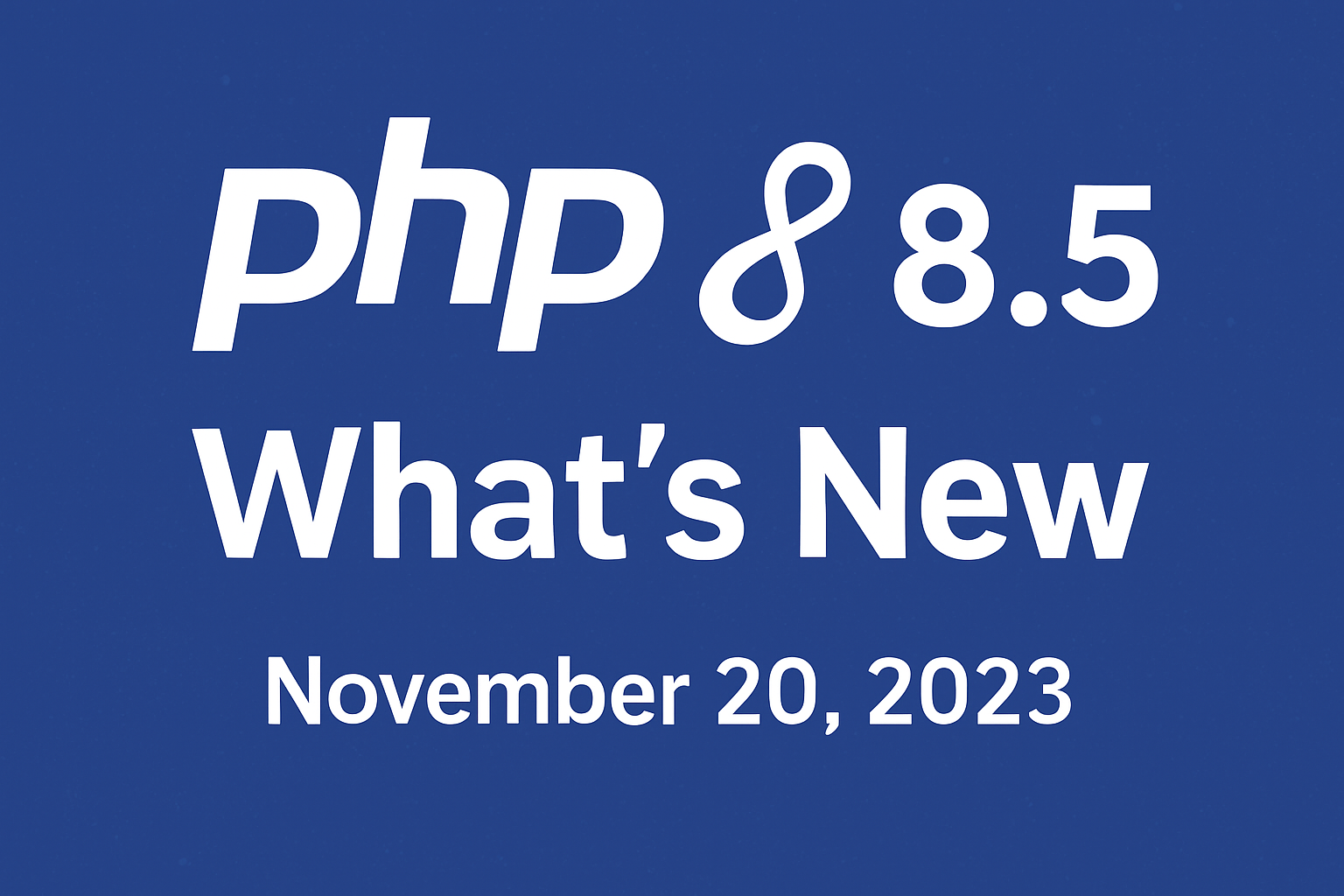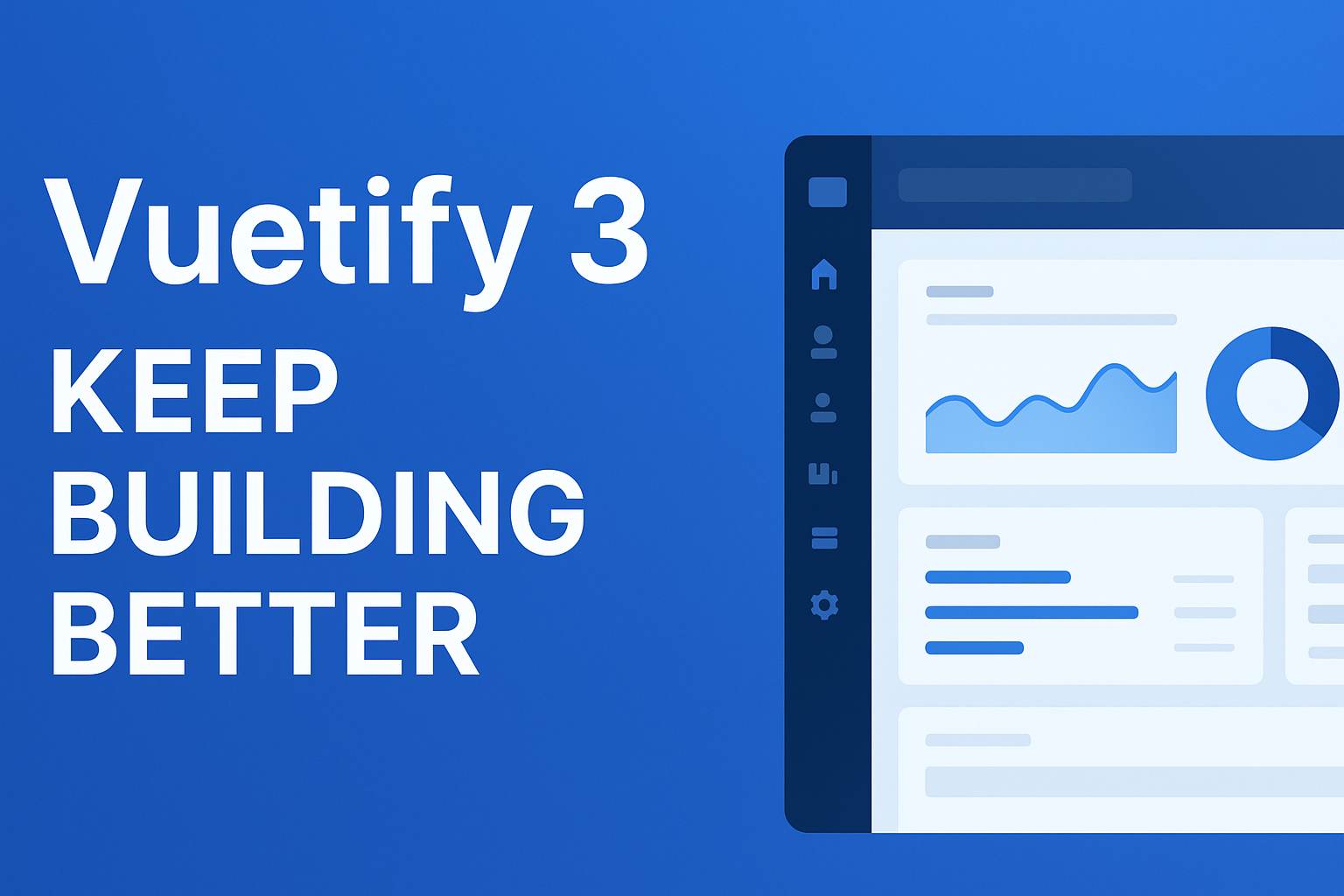🚀 The Stack That Won Developers' Hearts: An Introduction
Laravel and Vue.js have been two of the most popular full-stack combinations for building web apps for a long time, especially in the SaaS space. As we get closer to 2025, the world of technology is full of AI-first frameworks, serverless architectures, and meta-frameworks like Nuxt, Next.js, and HTMX.
So, the most important question is this:
Is the Laravel + Vue stack still useful for building SaaS apps in 2025?
Short answer: Yes — as long as the implementation is smart.
Let’s break down why this stack still matters.
1. Laravel: The Backend Powerhouse for SaaS
Laravel is still an important part of SaaS-oriented back ends, and it offers a set of features that work well for startups:
-
Laravel Reverb (WebSockets): Real-time communication is built-in with a developer-friendly API.
-
Laravel Octane: Speeds up request processing using RoadRunner or Swoole to increase throughput with low latency.
-
Laravel Breeze, Jetstream, Spark: Pre-built scaffolding speeds up adding authentication, billing, and team features.
-
Huge ecosystem of packages: The active community continues to improve solutions for multi-tenancy, queues, and subscriptions.
-
Easy payment integration: Connect Stripe, Paddle, or Lemon Squeezy quickly for streamlined billing setup.
📌 For SaaS, Laravel delivers on speed, flexibility, and monetization—and often goes above and beyond.
2. Vue.js: The Easiest Frontend Framework to Use
Vue has evolved into a powerful and developer-friendly front-end solution:
-
Vue 3.5+: Efficient virtual DOM, tree-shaking, and the Composition API improve performance and DX.
-
Single File Components (SFCs): Combines logic, style, and markup in one place—easy to read and maintain.
-
Pinia + Composition API: A modern, reactive store model that supports modular, functional programming.
-
Vuetify 4: A Material Design component library that’s built for accessibility and WCAG compliance.
-
Vite: Lightning-fast hot module reloads and built-in ES module support = faster builds and feedback loops.
Vue accelerates the development of beautiful, interactive dashboards, forms, and onboarding flows.
3. Close Integration
Laravel and Vue are built to work together, and their synergy is stronger than ever.
-
Vite is now Laravel’s default bundler and makes adding Vue seamless.
-
Shared session and API token management is easy with Sanctum or Passport.
-
Use Inertia.js or Livewire for rich, SPA-like interactions without giving up Laravel’s routing or SSR flow.
📌 Laravel + Vue allows full-stack developers and small teams to work with speed, clarity, and cohesion.
4. Developer Experience is Important
While many stacks demand hours of configuration and setup, Laravel + Vue gives you speed and clarity:
-
Laravel’s routing, Eloquent ORM, and robust APIs are intuitive.
-
Vue’s reactivity, transition system, and Composition API make the frontend elegant.
-
Built-in tools and scaffolding speed up features like user auth, teams, notifications, and settings.
Solo founders, agencies, and lean teams love the momentum this stack brings. MVP to production in days, not weeks.
📦 5. Real-World Use Case: PrimeDash Vue + Laravel Admin Template
We tested the stack with our own product — the
PrimeDash Vue.js Laravel Admin Template:
-
Fully compatible with Laravel 10 and Vue 3.5
-
Uses Vuetify 4, Vite, Pinia, and the Composition API
-
Clean separation between components and views for easy customization
-
Comes prebuilt with modules for:
-
Dashboards
-
Forms
-
Tables
-
Role-based settings
-
Perfect for CRMs, SaaS panels, analytics dashboards, and multi-tenant systems.
⚖️ 6. When Laravel + Vue Might Not Be the Best Fit
While powerful, Laravel + Vue isn’t ideal in every situation:
-
For hyper-real-time interactivity, consider Nuxt 4 + Firebase or Next.js + Supabase.
-
Jamstack apps might benefit from a headless CMS + static SSR setup.
-
Teams deeply familiar with React may prefer sticking with React-based front ends.
But in 90%+ of SaaS cases, Laravel + Vue remains a powerful and maintainable solution.
✅ Conclusion: Still a Strong Contender in 2025
As tech trends come and go, reliability, maintainability, and community support will always matter more than hype.
In 2025, Laravel and Vue remain a top-tier choice for building robust, scalable SaaS apps. Whether you're launching an MVP, building internal tools, or scaling an enterprise platform — this stack offers:
-
Quick time-to-market
-
Flexibility for scale
-
Productivity for solo devs or small teams
🔗 Speed Up Your Development Cycle
Check out our hand-picked, ready-to-use admin components:



